
–17-11-2024-
Thirty-Third Sunday in Ordinary Time Cycle B
Gospel text: Mark 13:24-32
vs.24 Jesus said to his disciples,
‘In those days, after that time of distress, the sun will be darkened, the moon will lose its brightness,
vs.25 the stars will come falling from heaven and the powers in the heavens will be shaken.
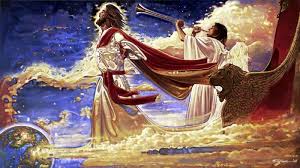 vs.26 And then they will see the Son of Man coming in the clouds with great power and glory;
vs.26 And then they will see the Son of Man coming in the clouds with great power and glory;
vs.27 Then too he will send the angels to gather his chosen from the four winds, from the ends of the world to the ends of heaven.
vs.28 Take the fig tree as a parable; as soon as its twigs grow supple and its leaves come out, you know that summer is near.
vs.29 So with you when you see these things happening: know that he is near, at the very gates.
vs.30 I tell you solemnly, before this generation has passed away all these things will have taken place.
vs.31 Heaven and earth will pass away, but my words will not pass away.
vs.32 But as for that day or hour, nobody knows it, neither the angels of heaven, not the Son; no one but the Father.”
*******************************************
We have four commentators available from whom you may wish to choose
Michel DeVerteuil : Holy Ghost Priest, Late director of the Centre of Biblical renewal .
Thomas O’Loughlin: Prof of Historical Theology University of Nottingham NG7 2RD
Sean Goan: Studied scripture in Rome, Jerusalem and Chicago
Donal Neary SJ: Editor of The Sacred Heart Messenger and National Director of The Apostlship of Prayer.
****************************************
Michel DeVerteuil
Lectio Divina with the Sunday Gospels
www.columba.ie
Textual Comments
This is the final teaching of Jesus’ public ministry.
The language is very symbolic but through our meditation we will be able to enter into it and really enjoy it. The whole passage is under the heading that this is what Jesus said to his disciples.
We can begin by asking ourselves who was the person who spoke to us in this way? It could be anyone; often we find that it was someone we had never thought of as having been sent to us by God. Now we can recognize that he or she (or perhaps they) were truly a “divine” person.
~Perhaps it was one of our children;
~a person in our neighbourhood we had thought little of;
~or someone from another faith we had tended to look down on.
Now we recognize that they were sent to us by God, sent by him to stir us up. They remind us of deep lessons we could learn from the evil we see going on all round us. It was a “time of distress”, many things had gone wrong for us, but life teaches us that times like that also contain an important message for us. Now we can see this more clearly than ever before.
We can divide the passage into three sections. They are connected of course, but the language is very symbolic and it would be better to focus on one at a time, allowing each to touch us very deeply.
First. Let’s take verses 24 to 27
They tell us of the breakdown of stable parts of our surroundings. Things we had taken for granted we couldn’t do without; now life has taught us that we can well survive without them.
Two things happening at the same time however:
* the scattering of what at first seemed so important that we thought we could never survive without it,
* the gathering of God’s faithful.
While areas were being destroyed which we thought we couldn’t do without, God’s faithful ones, his true citizens, were now being gathered into one community, a very happy zealous community. It was the kind of community that many of us outside are not involved in, but we know now that it was really a true and easily verifiable community.
This is a teaching about the end of the world. We must however start by letting it remind us of other experiences, times when things whose disappearance we believed would mark the end of our little world actually disappeared – and yet we survived! Things that we had thought were destined to last forever turned out to be just temporary.
We had taken things for granted – now we are taught by life that it was merely our little “private world” which has come to an “end”. The ancient order has truly passed away and we are now well and truly into a new one. It is one that we hadn’t prepared ourselves for; it’s advent took us by surprise.
These experiences occur both for communities and for individuals. There were times when we thought that provided we were faithful to certain circumstances our life, our community, would be fine. Now we know how inaccurate our little prejudices were.
In verses 28 and 29 we read the parable of the fig tree. It speaks to us about life and how it turns out for us. Even in an atmosphere of winter, a small sign of hope was present among us. We can look back now and see how it was there – even though we didn’t recognize it at the time. Now we can see it for what it really is.
In verses 30 and 31, Jesus gives a sense of urgency to the parable. He assures us that whatever happened to him, his words will not pass away – they will last forever. This was a true prophecy in the time of Jesus; in what sense can we say that it is always true when it happens to us today?
We need to put our views of life forward with the same sense of self-confidence, the sense that this is really what God wants us to say to others. We ourselves are significant.
We had not seen the connection between the commandment and God’s pleasure in what we do. As we read it here, it is a statement made by Jesus to us. We must now ask ourselves to what extent can we Christians speak with similar confidence about our own statements to the world of today? They are our own ideas of what is right and what is wrong. We do not say to them with the confidence that this is really what God wanted us to say to our people and indeed to the whole world.
Verse 32 can stand by itself as a powerful statement of faith in God’s future. Only the Father knows what was really happening to us. The angels did not and neither did the Son. We can often think of similar surroundings now. We tended to look to the angels or to the Son to give us a correct answer but find none from them. We must therefore have confidence to say what we truly believe in.
Scriptural Prayer
Lord, we remember with gratitude the times of crisis in our lives:
* a spouse proved unfaithful;
* we lost our job;
* we fell into a serious sin;
* we learned we were seriously ill;
* we lost someone dear to us.
 Our world fell apart in those days, after that time of distress.
Our world fell apart in those days, after that time of distress.
*The sun was darkened,
* the moon lost its brightness;
* the stars came falling from heaven,
* and the great powers of heaven were shaken.
But you did not abandon us;
in the midst of all that turmoil we received a great grace
~ we understood for the first time the meaning of faith;
~we discovered inner resources we didn’t know we had;
~ friends rallied around us.
We experienced your saving power coming in the clouds
with great power and glory and sending your angels to gather us,
your chosen ones who had been scattered to the four winds,
from the ends of the world to the ends of heaven.
“The more solitary I am, the more affection I have for all my brothers.” …Thomas Merton
Lord, when we are driven by our egos we put people into categories:
*rich and poor,
*the saved and the sinners,
*developed countries and third world countries.
When we enter into our nothingness before you,
letting the stars we aspire to fall from heaven
and the great powers to be shaken,
we experience your angels gathering together all those people
whom in our wilfulness we had scattered to the four winds.
“If we listen attentively we shall hear, amid the uproar of empires and nations,
a faint flutter of wings, a gentle stirring of life and hope.” …Albert Camus
Lord, we thank you for those people who,
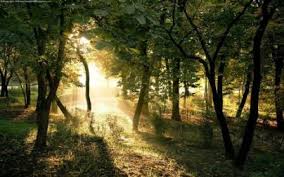 when everyone else sees only deep winter, perceive that the twigs of the fig tree have become supple,
when everyone else sees only deep winter, perceive that the twigs of the fig tree have become supple,
and therefore summer is near,
a new era is coming, is at the very gates,
and that before this generation has passed away new and wonderful things will have taken place.
Lord, prayer is trusting totally in your love,
knowing with unshakeable confidence
that heaven and earth will certainly pass away but your love for us will not pass away.
Lord, the freedom which Jesus bequeathed to us enables us to do our best without having to worry about when or where it will bear fruit. Like Jesus, we are quite content to acknowledge that as regards the day and the hour of success, no one knows it, no one but you, our loving Father.
“The dark period is over and Europe is on the threshold of a new era.” …Pope John Paul II, Aug. 1991.
Lord, we thank you that we have seen stars fall from heaven and great powers shaken.
Your chosen ones who were scattered to the four winds are being gathered to build a new future.
********************************************
Thomas O’Loughlin
Liturgical Resources for the Year of Matthew
www.columba.ie
Introduction to the Celebration
Autumn is turning into winter, the leaves have fallen, the cold darkness seems to be ever more present – and for us, Christians, our thoughts turn to the end of time. But rather than the end of time being an apocalyptic prospect, we journey onward with the confidence that the Lord who is the judge of the living and the dead is also the one who is the healer, who reconciles and forgives, the prince of peace. It is in his presence that we have gathered, rejoicing that this meal is the anticipation of the heavenly banquet.
Homily notes
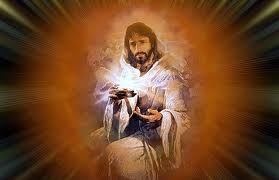 1. The gospel puts before us the great image of the Son of Man returning to the earth and gathering his people. This dramatic image – the stuff of many a religious nightmare – arrests our attention and focuses us, at this time each year, on one little line in the creed: He will come again in glory to judge the living and the dead, and his kingdom will have no end.
1. The gospel puts before us the great image of the Son of Man returning to the earth and gathering his people. This dramatic image – the stuff of many a religious nightmare – arrests our attention and focuses us, at this time each year, on one little line in the creed: He will come again in glory to judge the living and the dead, and his kingdom will have no end.
Unfortunately, the image of today’s gospel is so striking that down the centuries generations of Christians have become so excited about the ‘apocalypse‘, that they have forgotten that proclaiming that the Lord will come at the end of time is only the second half of the equation. So what is The first half?
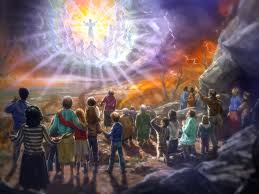 2. Whenever we think about the end when the Lord, the Son of the Father will come again; we must also think that the Lord, the Son of the Father, is the one through whom the universe came in existence at the very beginning. This is what we profess earlier in the creed: through him all things were made. And the Lord, the Son of the Father, who was there at the beginning and will be there at the End, is also the one who is with humanity as our source of light and life: ‘For us and for our salvation he came down from heaven: by the power of the Holy Spirit he became incarnate from the Virgin Mary, and was made man.’
2. Whenever we think about the end when the Lord, the Son of the Father will come again; we must also think that the Lord, the Son of the Father, is the one through whom the universe came in existence at the very beginning. This is what we profess earlier in the creed: through him all things were made. And the Lord, the Son of the Father, who was there at the beginning and will be there at the End, is also the one who is with humanity as our source of light and life: ‘For us and for our salvation he came down from heaven: by the power of the Holy Spirit he became incarnate from the Virgin Mary, and was made man.’
3. To profess to be a follower of Jesus is to assert that he is the Alpha – there at the beginning – and the Omega – there at the End – and with us now.
4. But what does this mean? It means that we have to think of ourselves, all living creatures, and all creation as in a situation between God’s love at the Alpha, the beginning, and God’s love at the Omega, the end. Between these times we have been entrusted with the creation: we hold all creation, all life, on trust from God.
5. Jesus makes it very clear that we do not know when the end will come: But of that day or that hour no one known, even the angels in heaven, nor the Son, but only the Father.’ Our task is to act as the people who have been given responsibility to use the creation well, to act as good stewards to remember that when we abuse it we are breaking God’s fundamental loving trust in us,
6. We are all on a journey from the Alpha towards the Omega. How we make the journey — how we behave along that road, how we act as pilgrims who who have no notion when they will arrive – is all important.
 7. During the coming weeks we shall hear many reports in the media about climate change.
7. During the coming weeks we shall hear many reports in the media about climate change.
*We will hear of a new initiative to cut down on energy/carbon use. *We may take a load of bottles to the bottle bank for recycling,
*or we might just switch off some lights or gadgets that are running on stand-by.
When we hear these reports or do these things, we might think that all this has little do with religion or faith or waiting for the Lord to return to judge the living and the dead: we could not be more wrong.
We, as the people who have professed the universe to have been made through the Son and who believe he will come again, are the people who can set all ecological concerns in context. The creation is God’s; we have been entrusted with it; we are called to be good stewards.
**********************************
Sean Goan
Let the reader understand
www.columba.ie
Gospel
The last chapter of Mark before the events of the Easter is sometime called a ‘little apocalypse’. Aware of their Jewish roots, the first Christians made use of apocalyptic writing to present the victory of Jesus over sin and death. Their belief was that the resurrection had ushered in the last days and that Jesus would return soon. Therefore there was an urgency to their preaching of the gospel and we get a flavour of that from this reading. As we approach the end of another liturgical year, the church invites us to reflect on the fact that we are moving towards an ultimate goal, and that no matter how bad things may get God has triumphed and will triumph again. This type of literature is hard for us to relate to as it seems rather dark and fantastic but it is a literature of hope and that is its perennial value.
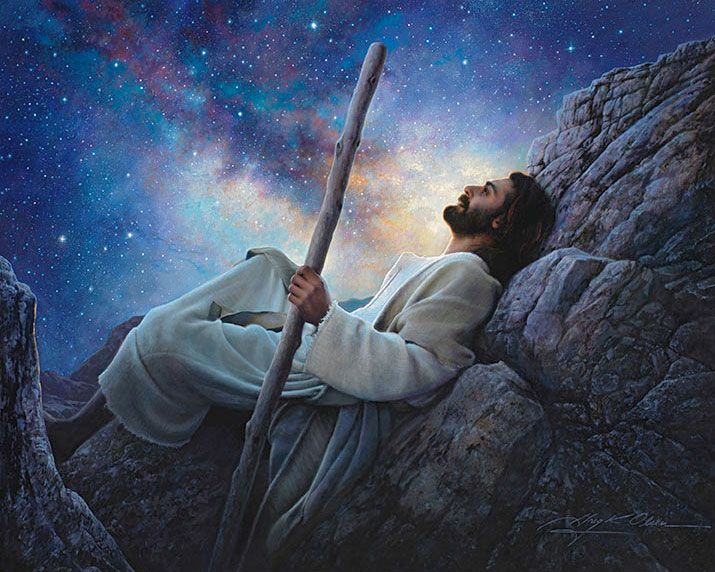
Reflection
The people for whom both our readings for today were written were probably spending much time thinking about the future and wondering where was God to be found in the violence and bloodshed that was going on around them. In these communities were two people whose names we do not know who had a vibrant vision of hope and they made it their business to share it with those around them.’ ‘Our God will not fail us so do not give up in the face of hopelessness or despair’ was the gist of their message. This is still the heart of the gospel message, so let’s ask or the faith to believe it and the courage to share it.
************************************
Donal Neary SJ
Gospel Reflections for Sundays of Year B
www.messenger.ie/bookshop.
Reminder from the Tree
 The tree was a big image for Jesus – he spoke many truths of his message pointing at trees,
The tree was a big image for Jesus – he spoke many truths of his message pointing at trees,
~like mustard seeds which grew big,
~ vines that withered,
~ and the fig tree which was common to his hearers.
When asked about the signs of things to come, he gave no long homily, but just looked at the fig tree and said you know from this when summer and winter is coming. In the same way we can sense his presence in our lives in different ways. This may not help us to know about the end of time and the questions people had then, but it can get us to become aware of how God is present in our lives.
The word of God is spoken in the human words of many people. In kindly words, in forgiving and tolerant words, and also in the word of God spoken in the Mass, Jesus speaks to us today. Like the people looking at a fig tree, we can find his presence in the kindliness and the helpful words of another. This is the word of God in human form. It will not pass away.
We are called to speak his word in our way of life:
*to be friends of the earth,
*friends of all people, and
*friends of the poor. That’s redemption, Jesus and ourselves working in unison.
God’s book of compassion and love includes our names.
We can be thankful our are names are in the book of life.
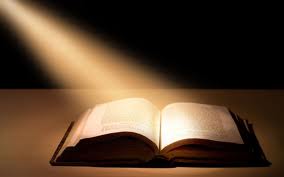
Imagine a blank page of the Book of Life:
see your name on the page, and a list of the good you have done.
Lord bring more good out of what I have tried to do in my life out of love.
*******************